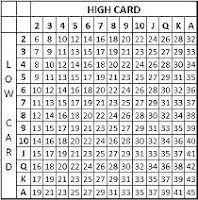Travel Report: 2015 PCA, Day 9 -- The Final Final Final Final Final
I’m thinking of my nephew who will be turning six relatively soon, the one who likes to invent different games for us to play. Noted yesterday how I wrote one post this week -- “Finding little edges” -- in which I mentioned him and one of his games, the very common one among youngsters of jumping around from one piece of furniture to another while referring to the carpet below as “hot lava” or quicksand or something else treacherous.
He has another game which we have “played” although in actuality the game is strictly him reiterating the rules to me over and over without our ever competing (or so I can tell). Just when the game appears to be over, he amends things to say how the next exchange will be the “Final Final.” Then comes the “Final Final Final,” the “Final Final Final Final,” the “Final Final Final Final Final,” and so on.
There were a couple of finals occupying our attention yesterday, the conclusions of the $10K Main Event and $25K High Roller. Over in the Main the action was fairly swift, taking around six hours, I believe, for the final six players to play down to the winner, Kevin Schulz (photographed above by Joe Giron).
Schulz roomed with Faraz Jaka on this trip, and the story of the pair’s first meeting around eight years ago at the University of Illinois Urbana-Champaign -- at a talk given by Urbana-Champaign alum Barry Greenstein, no less -- was intriguing. You can read that story and profiles of the other five who made it to the last day here.
Schulz won a first prize of $1,491,580 (there was no deal). Meanwhile Jaka was at the final table of the High Roller where he had a shot at nearly $1.3 million. He’d bust in seventh, though, then the final two players struck a deal to even out the payouts between first- and second-place.
The eventual winner, Ilkin Garibli, had a big chip lead on Joe Kuether when the deal was struck for the remaining prize money, but the payouts upon which they agreed were nearly even (about $1.1 million for Garibli and $1.05 million for Kuether). Stephen wrote an introduction to Garibli early in the afternoon, noting among other things that this was the first live tournament for the Azerbaijan player -- perhaps an explanation for how the deal went.
From there they played only for the trophy and SLYDE watch, and it took long enough (a couple more hours or so) for us to recognize the irony of the prize of a watch extending the time of the tourney.
There were also a number of unlikely suckouts and other tourney-extending turns that I am sure made it seem like to most of those still sticking around that someone was revising their fate over and again. The final final final final final final....
Along the way yesterday I shared one anecdotal post about Dan Heimiller who was leading early in the day in the High Roller before busting in eighth. It includes details and an appreciation of his currently inaccessible website, and is titled “But where will we buy our X-ray glasses and sea monkeys?”
Even with the late finish (around 1:30 a.m.), a group of us got to hang out for a while longer before going our separate ways. Was a fun end to a fun week, and I’m very grateful for having had the chance to come work with the PokerStars bloggers (Brad, Howard, Stephen, and Adam), photographers (Joe, Neil, and Carlos), staff (too many to name), and alongside all the other poker media folks whom I missed seeing at last summer’s WSOP.
Now, though, I’m just wanting to see Vera, brush and feed some horses, and chase around some cats. So glad to be heading home final final final final finally.
Labels: *high society, 2015 PokerStars Caribbean Adventure, Dan Heimiller, Faraz Jaka, Ilkin Garibli, Joe Kuether, Kevin Schulz





 while the BB turned over
while the BB turned over 
 . I remember thinking the small blind’s hand was perhaps a little better than I’d necessarily expected to see, while the big blind’s hand might’ve been a tad worse. But really they each could’ve turned up just about anything there, given the stack sizes and situation.
. I remember thinking the small blind’s hand was perhaps a little better than I’d necessarily expected to see, while the big blind’s hand might’ve been a tad worse. But really they each could’ve turned up just about anything there, given the stack sizes and situation.













